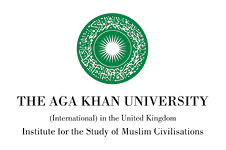Director: Jorge Santos Alves (Universidade Católica Portuguesa, Lisboa)
ISMC-AKU Partner and leader: Professor Stéphane Pradines
Scientific Advisor: Dr. Walid Ghali, Head of Aga Khan Library
Arquivo Histórico Ultramarino preserves archives related to the Portuguese Empire. It is located in the Palácio da Ega on Calçada da Boa-Hora in the city of Lisboa, near the Rua da Junqueira. Among its holdings are records created in 15th-20th century related to colonial Angola, Brazil, Cape Verde, Guinea, India, Macau, Mozambique, São Tomé and Príncipe, Timor, Uruguay and other locales. AHU's mission is to guarantee access to this common archival heritage and its transmission to future generations an through it, the construction of memories, the production of knowledge, cultural enjoyment and the response to requests for proof by citizens and the state.
The Indian Ocean archives project of the Universida de Católica Portuguesa concentrates on the India Series collection of Arquivo Histórico Ultramarino (AHU0 (some 37,000 documents stored in 499 boxes), ranging from the late 16th century to the early 19th century. Most of the documents are not published and remain explored, even today.
The India Series includes, besides official documentation, a considerable number of private letters, petitions, ledger books, and a number of documents in various languages (Chinese, Marathi, Thai, Arabic, Jawi, Persian and Swahili).
This digital humanities project will be the most valuable research-tool accessible worldwide to researchers interested in exploring the India Series collection, always in a multi-disciplinary approach (history, sociology, anthropology, religion, linguistics, archaeology, studies of culture).
The importance of the India Series collection may be considered under several perspectives (Asia-Europe Cultural relations, imperial and colonial history and imperial-connected histories), but it is relevant in terms of the Indian Ocean local/regional/global perspective (state formation and pre-colonial state-systems, maritime trade, religious networks, cultural relations, language history, translation history, human migrations and diasporas).


